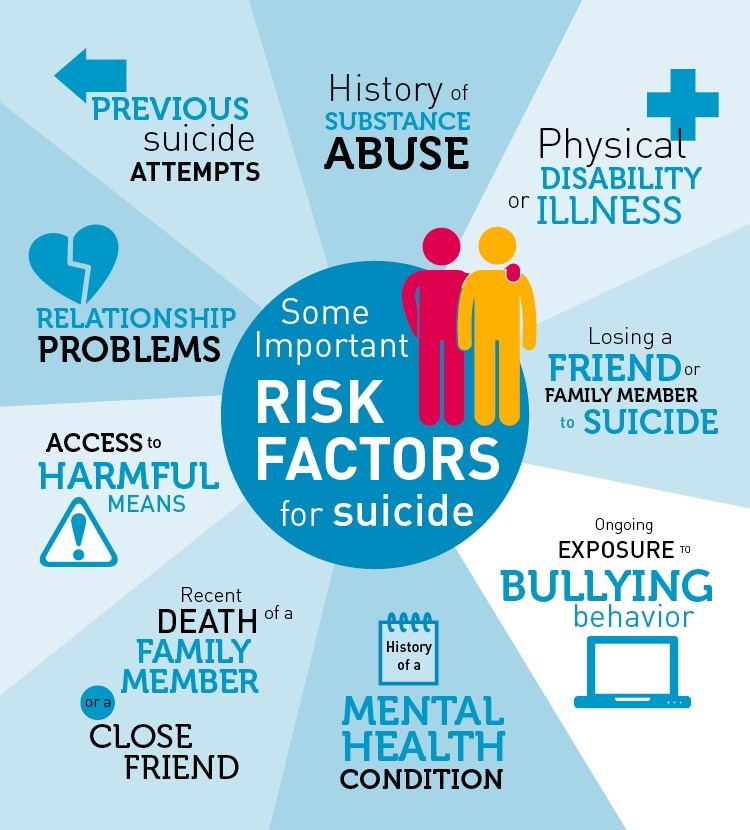What I am writing about might be hard for some to read. Suicide is never an easy topic, especially if someone close to you has died by suicide. However, I am convinced that we need more and better conversations about suicide prevention, not less. This requires us all, and especially those of Christian faith, to think critically about the ways that we engage with those who are tempted to end their lives by suicide around us.
One area that needs more critical thinking is whether suicide is more a problem of the brain, or more a problem of the heart. Without a doubt, both the brain and the heart are involved in the choice of suicide, but how we understand, define, and differentiate terms such as heart and brain impact how we engage with suicidal persons.
Just this week, a well-known pastor took his life and left behind a mourning family and congregation. The sad irony is that the day he took his life was an exact timeframe that had been designated for “Suicide Prevention.” This pastor had been really open about his ongoing struggles with suicidal thinking and his battle with depression in recent years. A pastor dying by suicide is tragic, heartbreaking, and far too common.
Suicide is a personal topic for my family as well because I have an uncle who survived a suicide attempt. He was left with an indentation in his temple where a bullet traveled through his optic nerve and skull and became lodged in his brain. My uncle lived another 40 years after the attempt without eyesight. He likely suffered from PTSD after Vietnam, abused substances, and had significant relational strife that complicated his story as well. While we are grateful that he came to know and trust Christ for himself, his ongoing complications prompted our family to think often about suicide and served as an ugly reminder of suicide’s impact, even though he survived his attempt.
A Counter-Productive Explanation: Brain Brokenness
How we talk about suicide impacts the way that we think through suicide prevention. While we can advocate for the need for “better mental health care,” our churches need more specific strategies to be more effective in suicide prevention. It matters how we answer the question, “Why do people kill themselves?”
Often we hear the simple answer that, “their brain broke.” Well-meaning friends often console one another using this exact phrase or a few variations of it in times of grief. It seems compassionate because it denies culpability from the one taking their life. However, this statement in isolation has a fairly significant and counter-productive side effect. The conversation often ends here and it shouldn’t.
Since virtually all of us would feel powerless to fix or improve someone else’s brain health, we may feel powerless to do much good to help a suicidal person. If the cause of suicide is brain malfunction or disease, is our only resort to recommend medical help? I think this is a faulty way of addressing the situation because suicide has more to do with our hearts than our brains.
Our Brains Don’t Act Alone
From a Christian worldview, our brains don’t create the thoughts we think, our hearts do. Our brains “house” the thoughts we think, but our thinking reflects our values and value judgments from our hearts. While it is also true that our brain can distort thoughts that we think (i.e. cognitive impairment, mental fatigue, complex trauma, allergic reaction, chemical imbalance, nutritional deficiency, traumatic injury), suicidal ideation is more complicated than simply identifying a brain malfunction that leads one to suicidal thinking.
For instance, your brain can’t make you a racist. Your heart makes you a racist. A racist has dysfunctional thinking driven by a value system that is proud, selfish, and unloving. Your brain can’t make you hate anyone, but your brain is where hateful thoughts are processed. Our brains don’t make us think lustful thoughts, desire wealth with greed, or fall in love. These are choices of the heart, but our brain houses the thinking necessary for these values to become patterns of thought and action in our life.
Our Hearts Are the Strongest Influence on Our Brains
In the Bible and Jesus’ teachings, we see that the thoughts we think, the actions we take, and the values we embrace all originate in and are influenced most by our hearts, not our physical bodies. Jesus used the word heart as a descriptor of the inner man, the spiritual man, as opposed to the body. The heart functions as a control center and the primary influence of our thoughts, feelings, and actions. Consider how the following three passages describe the heart’s influence on every area of life:
- Luke 6:45: The good person out of the good treasure of his heart produces good, and the evil person out of his evil treasure produces evil, for out of the abundance of the heart his mouth speaks. (ESV)
- Matthew 15:18–19: But what comes out of the mouth proceeds from the heart, and this defiles a person. For out of the heart come evil thoughts, murder, adultery, sexual immorality, theft, false witness, slander. (ESV)
- Proverbs 4:23: Keep your heart with all vigilance, for from it flow the springs of life. (ESV)
The treasures, words, feelings, values, and behaviors of man all flow through and from the condition of his heart. We do not say this from a position of judgment, for all of us have corrupt hearts and are desperately needy. This is why we need the Spirit of God, the power of God, and the Word of God to effectively navigate life. We need the heart change and life restoration that only Christ can bring. Our hearts will not be fully whole or healed on this side of eternity.
The Mind, the Heart, and the Psychological
When determining “why people do what they do,” people often describe our problematic choices as a problem in our mind (cognitive), a problem in our heart (moral), or a “psychological problem.” Jeremy Pierre, in his book The Dynamic Heart in Daily Life, explains the importance of a biblical understanding of these terms. He argues that trying to distinguish between these terms runs counter to the way that we should view them as a unified whole, in essence, a unified “inner man.”
“Scripture uses different anthropological terms—heart, soul, spirit, mind, and more—to describe a simple, singular human experience. . . . The terms for soul, spirit, and mind describe the same types of function as the term for the heart. In other words, they all do the same thing, indicating the various biblical terms for human experience do not refer to multiple spiritual organs that do different things. The biblical authors understand human experience as flowing from one, unified heart.”
Heart Patterns of Suicidal Thinking
When we talk to survivors of suicide attempts and begin to ask about thought patterns that led them to a point of attempting to take their own life, we see some common themes of the heart that evolve. While each story and person is unique, we can engage friends who may be suicidal by recognizing the heart patterns that can lead to suicidal thinking and attempts. Here are a few common thought patterns and life circumstances that can be problematic:
- Some die by suicide in vengeful anger.
- Some die by suicide to escape the shame of an exposed secret.
- Some die by suicide tired of dealing with an unrelenting depression.
- Some die by suicide in anxious, disturbing, and intrusive thought patterns.
- Some die by suicide overcome by despair brought on by deep relational disappointment (divorce, break-up, death, damage).
- Some die by suicide tired of fighting the demon of addiction that seems to always win.
- Some die by suicide to escape the pressure of expectations, performance, and stress they feel.
- Some die by suicide to alleviate the stress that their burdened life causes on others.
- Some die by suicide to join others who have passed on.
The following infographic captures much of this same information in a helpful way.

This is by no means an exhaustive list, but when you suspect someone is suicidal, it is typically because you have seen them struggling to deal with a pattern like those listed above.
If we are going to be effective in suicide prevention, no medicine will change the heart patterns of suicide. Medicine can often help people think through issues more clearly and stabilize their thinking about the issues in life that they are dealing with. For many, it can also change the way that anxiety and depression feel. However, a more holistic approach than simply addressing the medical issues of suicide is needed.
If suicide is mainly a problem of the brain, we will likely engage very little in the recovery of someone who is suicidal. However, when we see the desire/temptation for suicide as an issue of the heart, we have great possibility for helpful conversations. This is where our churches need to come into play and get better at having effective conversations that reach the heart.
Compassionate and heart probing conversations were the ministry model of Jesus. Let’s choose to engage the suicidal like he did.
If you need immediate help, the National Suicide Prevention Lifeline is available 24/7 at 800-273-8255, or go to www.suicidepreventionlifeline.org.













4 Comments on “Is Suicide a Brain Issue or a Heart Issue?”
Thank you Dr Allchin. Very helpful article. I will share with my Men’s Bible study in the morning. The list is a great one for the lay men and women as they go about working with the hurting and struggling folks. Also have the book mentioned by Jeremy Pierre, “The Dynamic Heart In Daily Life” Thank you and God Bless
Thank you for that informative article. Some listed reason for suicide was known while others was a new thought.
I believe that churches not only need to have more trained personel but not make those suffering from depression and other mental and emotional issues feel guilty, less “saved” or giving pat answers as a solution for deeper problems.
I got alot from reading about the brain. Your brain can’t make one a racist, the heart does. I’ve known the scriptures on the heart but this article help me see the difference between brain, thoughts, heart.
Pingback: NUGGETS: Suicide – Counseling One Another